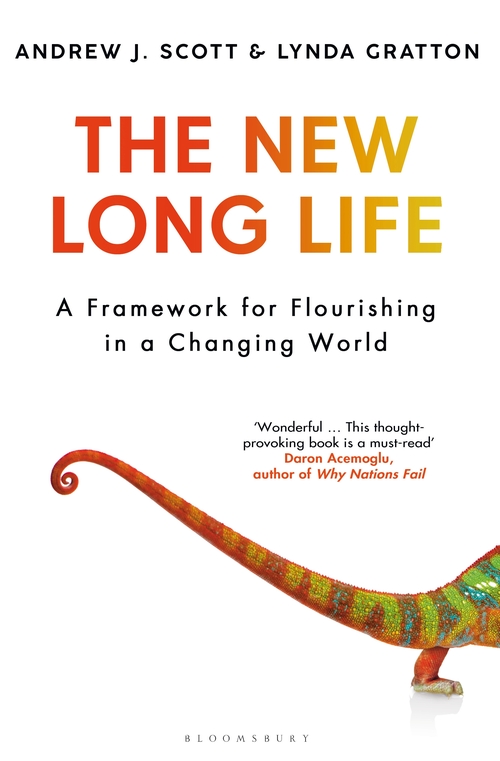 By Mark Venning, ChangeRangers.com
By Mark Venning, ChangeRangers.com
Special to the Financial Independence Hub
“In the face of longevity, if we want to reimagine age then we must first decouple the idea of a simple link between time and age. That requires imagining your age as malleable… It is this malleability that underpins the redesign of life stages.” Andrew J. Scott & Lynda Gratton, The New Long Life, 2020
Back together in The New Long Life: A Framework for Flourishing in a Changing World, Scott and Gratton have written the sequel to their highly lauded well-structured book from 2016, The 100-Year Life: Living and Working in and Age of Longevity. In the first book, the scene was set for deconstructing the concept of a traditional three-stage life; one where we shaped from 20th century clay, our social policies and societal norms, essentially into a lockstep world of education, employment, retirement.
Scott and Gratton challenged our minds, that if we were to look at the promise of living a longer life that would mean the lockstep three-stage experience would evolve and stretch, and we would have to reimagine a multi-stage life, more fluid, perhaps not so orderly. It would mean we would need to rethink how we finance this potential longer life, transform our personal journeys and as suggested now here in the sequel: rediscover our human ingenuity.
For all the side steps and jump-starts that a fluid and frequently interruptive multi-stage life may bring us, we will need to be better as masters of our own transitions.
“Human ingenuity has led us to extraordinary new technologies and substantial gains in healthy life expectancy. Yet … the answers to the question we have posed will be solved with social ingenuity.”
Continuous advance of technology and longevity
One of the great powers our two authors have is the ability to draw linkages between factors that are now shifting our society, and a prime example of that is both the continuous advance of technologies and longevity. By extension, this particular linkage recasts our notion of work and careers, wealth and health. What we do, where and how we work and for how long we choose to work. All this in mind the question left for us is: in what ways will we as individuals, employers, educators and governments reshape our society?
To answer that, The New Long Life poses leaning forward questions and threads many plausible possibilities around all this transitioning we will undoubtedly face regardless of age. Human questions is where the book begins and then nourishes our minds sprinkling ideas at us, somewhat like fish food for thought, right through each chapter. This is what makes this book together with the first, one masterful opus. Thus, my recommendation is to begin with a read of The 100-Year Life. (Reviewed by Mark here.)
Let me go further. After you read this twin set, I suggest you wander back to 2011 and pick up Lynda Gratton’s The Shift: The future of work is already here. Gratton wove the threads for these recent books way back then, as she spoke of the linkages between what she called the five forces at play in the future of work, two of those being technology and, demography and longevity.
However, as you take in this narrative over these three volumes, it is a mistake to think that all this talk about a new long 100-year life is only for people already at a later stage of life, over a certain age as it were. Too often, when I mention longevity in conversations, people think that very thing. Still, who could blame some for thinking this way? For years as a career advisor, I have known those who are with restless thinking, looking for a sense of continued engagement, teasing out a new retirement language, where it’s about a third age or a second act, or an encore or other variations.
No, The New Long Life is not a script or as Scott and Gratton call a framework: just for those at some arbitrary demarked age. It is a prospect that should entertain everyone at any age in a multi-stage journey.
 Mark Venning works with business & non-profit leaders offering presentations, advisory and research services to help in “recoding a longevity society,” finding their fit to meet the shift in aging demographics, and make sense of the emergent longevity economy. This blog originally appeared on Mark’s blog on Aug. 11, 2020 and is republished here with his permission.
Mark Venning works with business & non-profit leaders offering presentations, advisory and research services to help in “recoding a longevity society,” finding their fit to meet the shift in aging demographics, and make sense of the emergent longevity economy. This blog originally appeared on Mark’s blog on Aug. 11, 2020 and is republished here with his permission.

